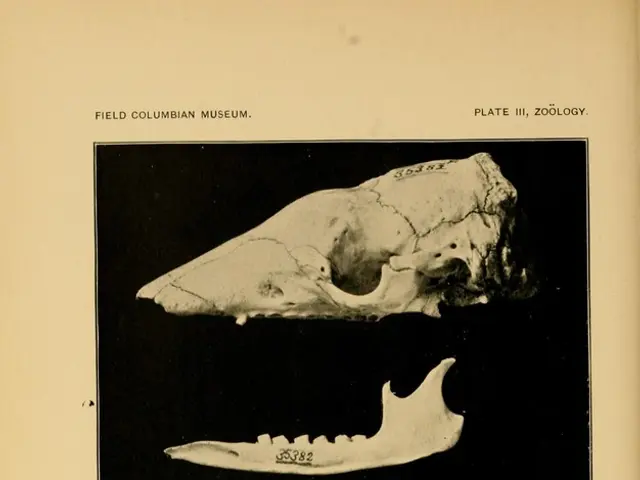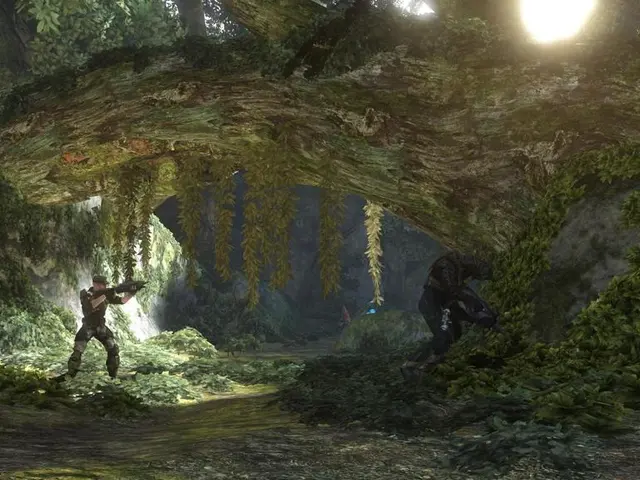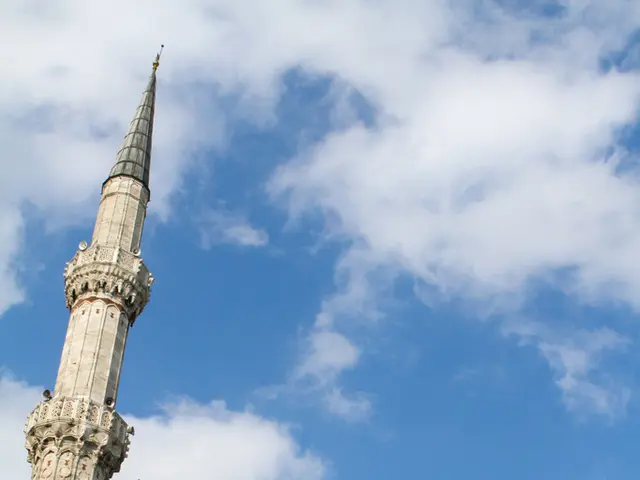Maduro contest U.S.'s financial dominance as Trump boasts about sanctions and tariff effects
April 16, 2025 (our website) - Venezuelan President Nicolás Maduro has issued a stern warning, accusing the United States of aiming to re-establish economic dominance by enslaving nations through a trade war. In a speech to the Great Patriotic Pole candidates for the May 25 regional and legislative elections, Maduro slammed** the Trump administration, claiming it intends to turn "countries into prisons and colonies of the empire."
Maduro pressed the candidates and the Venezuelan people to stand strong in the fight for independence, freedom, and self-sufficiency. He pointed out that the U.S. attempts to impose economic domination using tariffs and trade restrictions, aiming to subjugate economies across the globe. The Venezuelan leader also denounced the Trump administration for seeking political and military superiority, threatening bombings and invasions.
"Let them [the U.S.] know that we Venezuelans will not be enslaved," Maduro declared. "The Bolivarian Revolution is ready to confront these threats head-on, building new forms of grassroots and territorial power to solidify our political project and vision for a multi-polar world."
The U.S. President Donald Trump boasted about the negative effects of the 25 percent secondary tariff threat recently imposed on trade involving nations dealing with Venezuelan oil and gas. During a meeting with El Salvador's President Nayib Bukele at the White House, Trump suggested that Venezuela's leaders "know what to do" to lift the measures. Administration officials and high-ranking politicians have openly advocated for regime change in Venezuela.
China, the world's largest producer in many industries, faces potentially crippling tariffs, with duties as high as 145 percent. China has responded by imposing tariffs on U.S. goods. The U.S. and China are currently in a trade standoff that could affect $2.3 trillion worth of U.S. imports and reduce U.S. GDP by 0.2 percent if retaliatory tariffs are enacted from the EU, China, and Canada.
Guyana, a small South American nation backed by the U.S. in its dispute with Venezuela over the oil-rich Essequibo region, faced an unexpected 38 percent tariff. The Guyanese government is in talks with Washington to reach an "amicable resolution." Analysts believe that Washington is attempting to limit China's "foothold" in Guyana.
Venezuela, despite facing sanctions, manages to export oil to the U.S., reaching the highest levels since 2019—250,000 barrels per day. However, the revenue remains constrained due to price discounts and illicit trading channels. The secondary tariffs pose a threat to further isolating Venezuela's oil sector by pressuring third countries to halt imports.
The escalating trade and tariff war marks another chapter in the U.S.'s aggressive economic tactics against Venezuela. In March, the U.S. Treasury Department revoked licenses allowing foreign corporations to extract and export Venezuelan crude, leading to oil exports cancellations, including those for Texas-based oil giant Chevron.
Aside from the trade war, the Trump administration has intensified a campaign against Venezuelan migrants in the United States, invoking the 1798 Alien Enemies Act. Under this law, a group of 238 Venezuelan nationals labeled as gang members were forcibly expelled, sparking controversy and denials from the Maduro government. Critics argue that the campaign aims to criminalize working-class migrants and justify attacks against Caracas.
Edited by Cira Pascual Marquina in Caracas.
Additional Insight:- Secondary tariffs require third countries to enforce U.S. regulations, amplifying economic strain on both Venezuela and its trade partners.- European firms like Repsol and Eni face compliance hurdles, potentially halting Venezuelan operations without U.S. Treasury assurances.- The vast majority of Venezuelan detainees in the U.S. under the Alien Enemies Act have no criminal record, and evidence of gang membership remains unsubstantiated.
- The Bolivarian Revolution, led by Venezuelan President Nicolás Maduro, has vowed to confront threats head-on, aiming to build new forms of grassroots and territorial power to counter economic dominance attempts by the United States.
- Maduro accused the Trump administration of enslaving nations through a trade war, specifically mentioning the reimposition of secondary tariffs on trade involving nations dealing with Venezuelan oil and gas.
- Likewise, China, the world's largest producer in several industries, faces potentially crippling tariffs, with duties as high as 145 percent.
- In the realm of politics and policy-and-legislation, the Trump administration has been openly advocating for regime change in Venezuela, while also invoking the Alien Enemies Act to expel Venezuelan nationals labeled as gang members.
- The ongoing war-and-conflicts between the U.S. and Venezuela has not only affected trade and tariffs but has also extended to crime-and-justice issues, with criticism towards the administration's campaign against Venezuelan migrants in the United States.
- Not only does the trade and tariff war pose threats to Venezuela's oil sector, but likewise, the general-news outlets report on the increasing involvement of casino-and-gambling, with concerns over casino-games and potential implications on Venezuela's economy.








